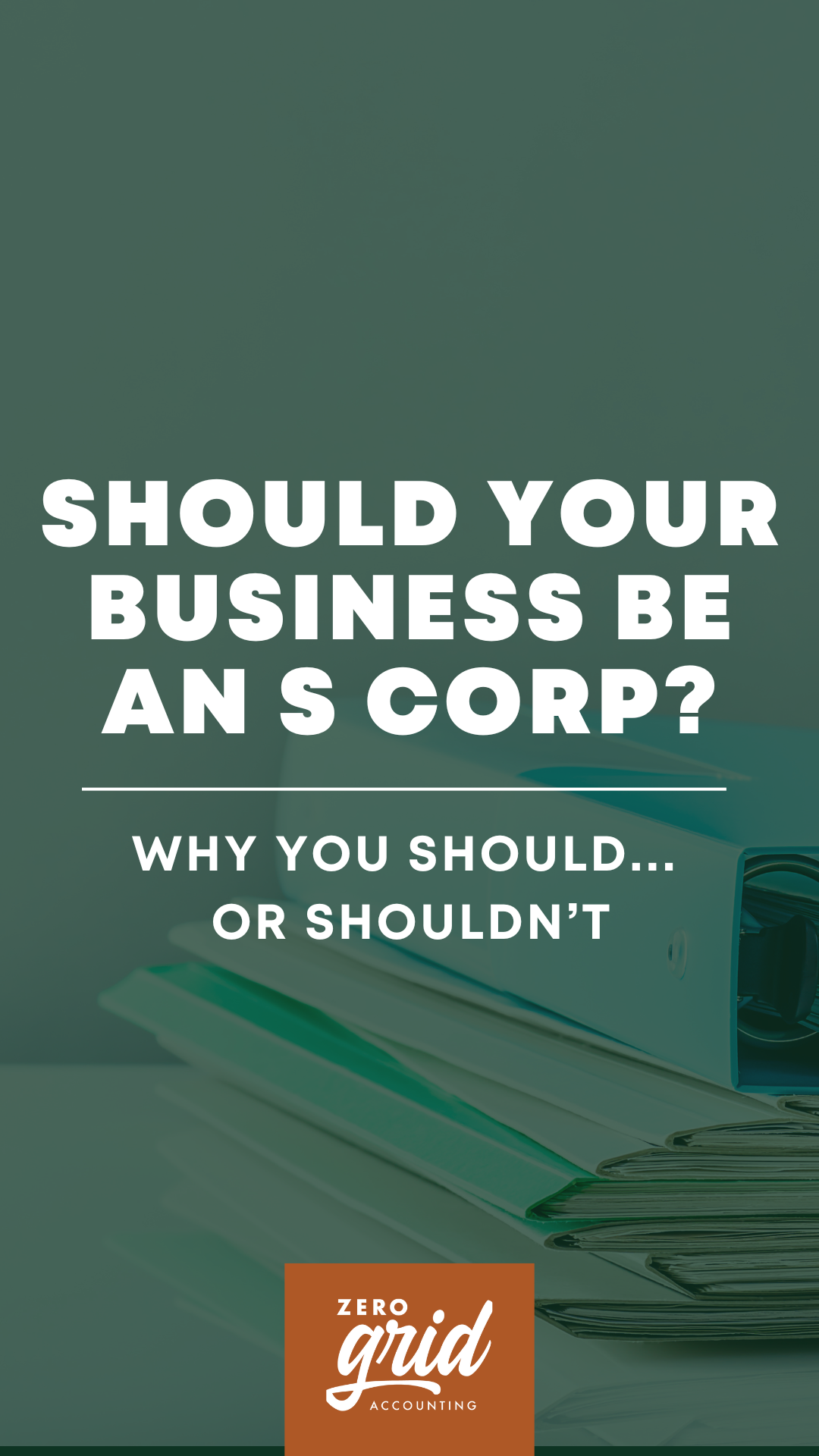To be an S Corp or not…
Electing to be taxed as an S Corporation (S Corp) is often touted as a great tax-saving strategy, but the truth is—it’s not the right move for every business. While S Corps can help business owners reduce self-employment taxes, there’s a point where the savings justify the extra costs and administrative work, and a point where they don’t. If you’re considering switching to an S Corp, here’s what you need to know before making the leap.
How an S Corp Saves You Taxes
The biggest tax advantage of an S Corp is how it treats self-employment taxes (Social Security and Medicare).
In a sole proprietorship or LLC, the owner pays self-employment tax (15.3%) on the entire net income of the business. But in an S Corp, only the salary paid to the owner is subject to self-employment tax, while the remaining profits (called distributions) are not.
Example:
If your business earns $100,000 as a sole proprietor or LLC, you’ll owe $15,300 in self-employment taxes.
If your business earns $100,000 as an S Corp and you pay yourself a reasonable salary of $60,000, you’ll only owe self-employment tax on that salary ($9,180). The remaining $40,000 in profit is not subject to these taxes, saving you $6,120.
Sounds great, right? But here’s the catch—S Corps come with additional costs and responsibilities, and if your business isn’t making enough profit, these costs can outweigh the benefits.
When an S Corp Doesn’t Make Sense
If your business profits are low (generally under $40,000 to $50,000), the cost of setting up and maintaining an S Corp can eat into any potential tax savings.
Here’s why:
Reasonable Salary Requirement: The IRS requires S Corp owners to pay themselves a “reasonable salary” before taking distributions. If your entire profit is needed to cover a fair salary, there’s no tax advantage.
Payroll and Compliance Costs: Running an S Corp means filing payroll taxes, keeping corporate records, and potentially paying additional state fees.
Tax Prep Costs: S Corps require separate tax filings (Form 1120-S), which often means higher accounting fees.
At lower income levels, the savings may be minimal or nonexistent. In fact, in some cases, an S Corp could cost you more than staying a sole proprietor or LLC.
Other Factors to Consider
Beyond just tax savings, consider the additional responsibilities that come with running an S Corp. You’ll need to:
Maintain proper corporate documentation, including bylaws and meeting minutes.
File and pay payroll taxes regularly.
Ensure compliance with state-specific S Corp regulations.
Avoid excessive distributions, which could raise IRS scrutiny.
Additionally, not all states treat S Corps the same. Some states impose franchise taxes or minimum fees, which could reduce or even eliminate the expected tax benefits.
When an S Corp Does Make Sense
An S Corp is worth considering when your business is consistently making $50,000 or more in net profit (after expenses but before owner pay). At this level, you can:
Pay yourself a reasonable salary while taking distributions to reduce self-employment taxes.
Justify the extra costs of payroll services, tax filings, and compliance requirements.
Actually see tax savings that outweigh the added expenses.
Plan for long-term growth while keeping tax efficiency in mind.
The Bottom Line
Don’t rush into electing S Corp status just because you heard it saves on taxes.
If your business isn’t generating enough profit, the costs and compliance burdens may not be worth it. Before making a decision, talk to an accountant to run the numbers and determine whether the tax savings will actually benefit your bottom line. The right business structure should fit your current situation—not just a future goal.
Thinking about switching to an S Corp? Let’s go over your numbers together and see if it makes sense for you! Schedule a consultation today. I can help break down the pros and cons specific to your business and guide you toward the best decision for your financial future.

